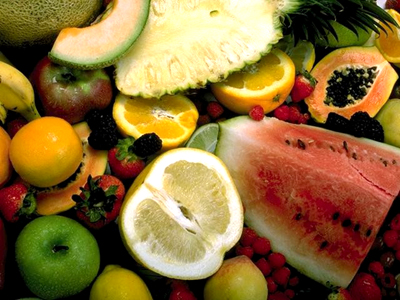We interviewed a local inn owner, Andres, who previously lived in the United States before moving to Chugchilan, Ecuador, about what it is like to eat locally in rural Ecuador, especially in comparison to what it is like to eat locally in the United States.
- What inspired you to start eating locally/growing your own food? What benefits have you seen since you started doing this?
This is simply the logical way to live, especially when living rurally in Ecuador. It was not so much of a big decision, but the easiest way to get the products we needed. Because Ecuador has such diverse micro-climates almost everything we use at the Inn in produces from within 100 miles. This includes: veggies, fruits, grains and dairy such as Oranges, Bananas, Mangoes, Naranjilla, Passion Fruit, Papayas, Avocados, Tangerines, Apples, Pears, Cherries, Strawberries, Broccoli, Lettuces, Carrots, Beets, Chard, Onions, Peppers, Tomatoes, Squash, Potatoes, Corn, Rice, Barley, Fava Beans, Quinoa, Kidney Beans, String Beans Eggplant, Zucchini, Sugar, Coffee, Cheese, Milk and Yoghurt and so much more! Ecuador is great in this respect. Plus we grow some of our own food too. Foods that come from far away are liquors and wine (but we only buy Chilean and Argentinean) and olive oil.
- When you lived in the United States, did you eat as locally and sustainably as you do in Ecuador?
There was not a local foods movement at that time. I did work on an Organic Farm, an Apple Orchard, in an Organic Foods Warehouse and drove truck delivering produce to local co-ops in New England. So yes I was aware of the food chain. I remember in 1989 that the owner of the farm where I was working called a farmer (competitor) in California and asked him not to ship his carrots from California to the East Coast for 2 weeks so that he could sell his organic carrots first. The California farmer had about 300 acres of organic carrots and my boss only had 3 acres of organic carrots, which meant that the California carrots were cheaper than the local produce even after traveling all the way across the country by truck. Of course the California farmer refused...
- If so, have you found it to be easier to eat locally and sustainably in Ecuador, or was it easier in the United States?
Ecuador is probably easier.
- Is there anything else you would like to share about eating locally?
People in the USA have an attitude that they can get any food product anytime they want, irrelevant of growing seasons or how far the food travels. Look at your typical breakfast and then cut out what comes from far away: no bananas, coffee or sugar.

 RSS Feed
RSS Feed